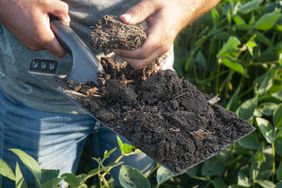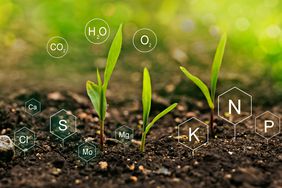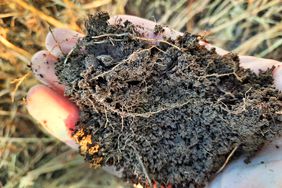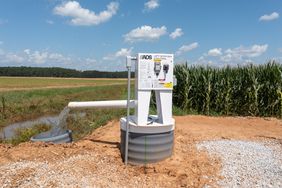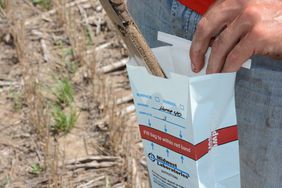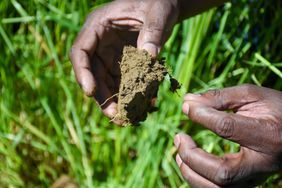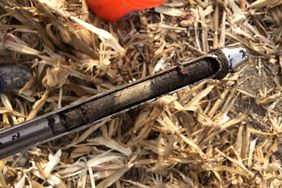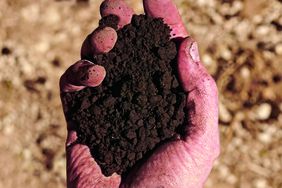:max_bytes(150000):strip_icc()/soiltest-1-b92d1815c944408ea9b8d5a7b3155026.jpg)
Soil pH affects many aspects of crop production, especially nutrient availability. Most of our main field crops like a neutral soil pH from 6-7. Soils with a pH higher than 7.5 are considered alkaline. This can cause issues with iron and phosphorous availability to the plants due to high calcium carbonate in the soil. Soil testing is the only way to know what the pH level is.
Jason Clark is an extension soil fertility specialist at South Dakota State University. He says there is no quick fix, so you have to work with what's there.
"For field crops, bringing soil pH down with an amendment, there are some out there that tell you to put iron sulfate or elemental sulfur on. But as far as like a broad scale, that's not as feasible," says Clark. "So, a lot of things we tell farmers to do is first of all start with your starter fertilizer and make sure you're getting your micronutrient metals and others there. Sometimes you can add some manure applications to help with some of the nutrient availability."
He says phosphorous and iron-containing fertilizer can be applied in furrow at planting to facilitate uptake by crop roots before it has a chance to react to alkaline soil conditions.
Before you plant anything, hybrid selection is critical when the soil pH is too high.
"What variety of soybean, what variety of corn? Usually a lot of these are going to have some measure of low iron tolerance or some measure of that nature that you're going to look at to hopefully help the plant itself just through genetics be able to overcome that high pH issue," he says.
